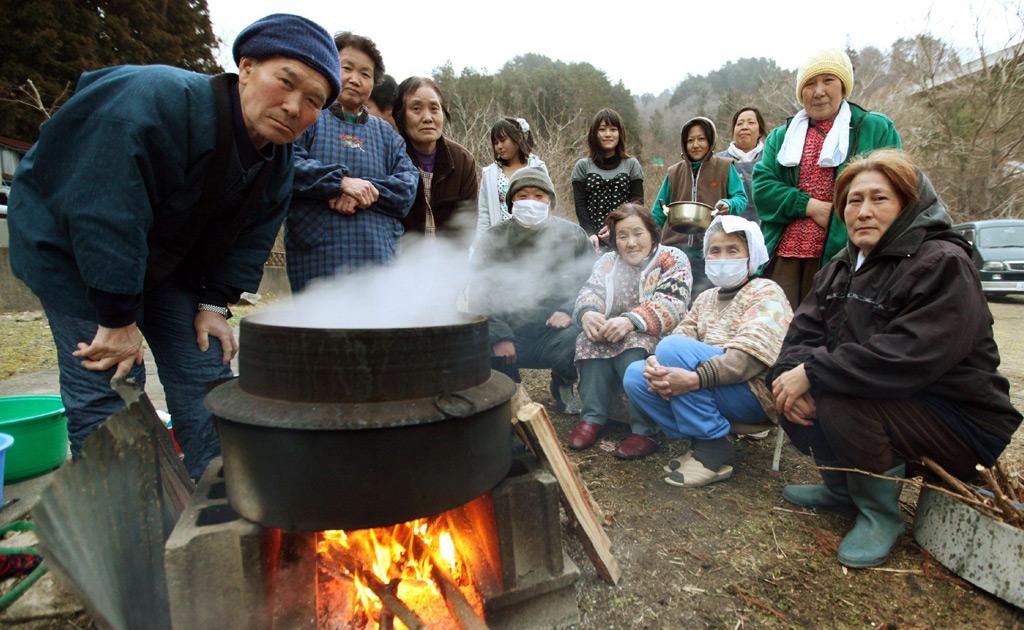Japan fears nuclear reactor may be cracked (VIDEO)
Local residents cook steamed rice at Onagawa town in Miyagi prefecture on March 25, 2011.
Japanese nuclear officials said they fear the core of one of the reactors at the stricken Fukushima power plant may have cracked and could be leaking high levels of radiation.
The alert came as police put the official death toll from the March 11 magnitude 9.0 quake and tsunami reached 10,035 with 17,443 missing.
Concerns were growing over No. 3 reactor — one of six units damaged by the double disaster — after workers were exposed to water containing 10,000 times the expected radiation levels, CNN reported.
Nuclear agency spokesman Hidehiko Nishiyama told reporters that it was possible the unit’s containment vessel had been damaged, raising questions over safety procedures in place to protect those working to avert disaster at the plant.
''At present, our monitoring data suggest the [reactor] retains certain containment functions, but there is a good chance that the reactor has been damaged,'' he said, according to Kyodo News.
Two workers were hospitalized after coming into contact with the radioactive water. The BBC said there were reports that the men had not been wearing the correct protective boots and had ignored a radiation alarm at the plant.
It said an inquiry was under way into safety procedures.
As work continued to cool the over-heating reactors, Japanese authorities widened the area around Fukushima in which they were recommending residents to evacuate.
Government spokesman Yukio Edano said the advice to people living within 12 to 18 miles of the power station was not linked to safety, but due to concerns over “access to daily necessities,” Kyodo reported.
However, he said the continued nuclear threat could lead to mandatory expansion of the exclusion zone.
"It is desirable that they voluntarily evacuate. I cannot rule out the possibility that the government will issue an evacuation order for this area if the radiation level goes up further,” he said.
Tepco, the power plant's operator, on Friday warned that the operation to stabilize Fukushima could take more than a month.
"We are still in the process of assessing the damage at the plant, so we can't put a deadline on when the cooling operations will work again. It may take more than a month, who knows," a Tepco spokesman told Agence France-Presse.
In China, the official Xinhua news agency reported that abnormal levels of radiation had been detected on a Japanese vessel arriving at the Chinese port of Xiamen.
It said “alarmingly high” levels of radiation were also detected on two Japanese citizens arriving in the city of Wuxi.
Both were taken for hospital treatment and their luggage and clothing subjected to “detoxification,” it said.
Radioactive iodine was detected in Tokyo's water supply earlier this week but levels have since fallen. The United States and several Asian countries have placed restrictions on imports of Japanese foodstuffs.
— Barry Neild
Every day, reporters and producers at The World are hard at work bringing you human-centered news from across the globe. But we can’t do it without you. We need your support to ensure we can continue this work for another year.
Make a gift today, and you’ll help us unlock a matching gift of $67,000!
